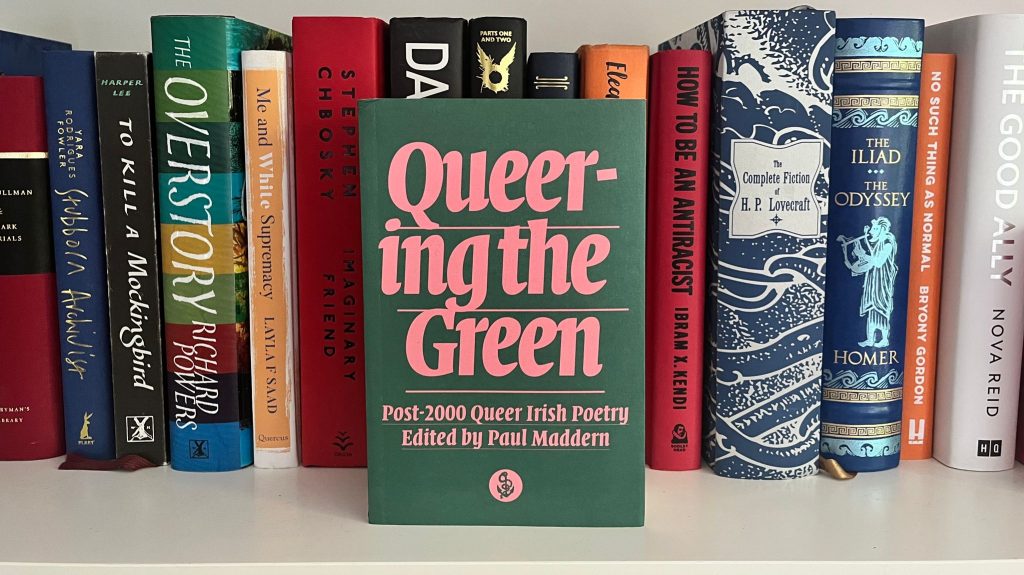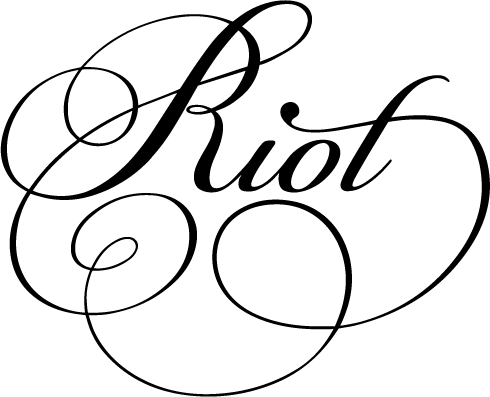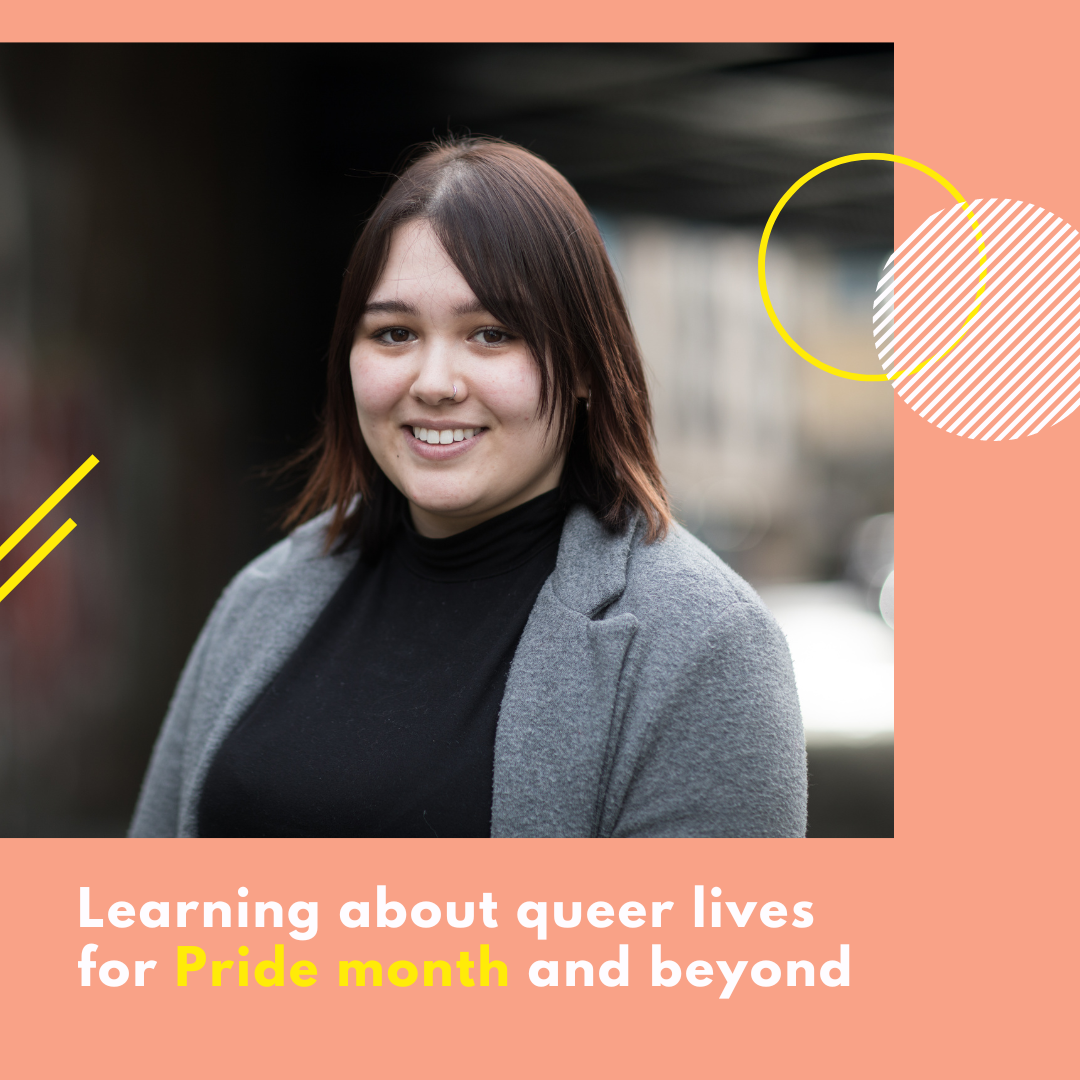Earlier this month, my colleague Tessa and I were lucky enough to see The Ministry of Lesbian Affairs at Soho Theatre for Pride just before the end of its run. Written by Iman Qureshi and featuring a fantastically diverse cast, it was both hilarious and heart-breaking in its look at continued biases and the lack of shared spaces for Lesbians: from painfully relatable Lesbian stereotypes (hello feminist poetry collections, rescue cats and Doc Martens…) to the shocking reality that even to this day – despite all the progress – finding a space where you feel truly comfortable to be your most authentic self is difficult.
Queer culture has moved into the mainstream, but it can often feel like rainbow washing and performative activism – usually marked by a Pride flag put up for the 30 days of June. Entering popular culture isn’t necessarily a bad thing – most homophobia exists because of fear and lack of exposure – but, at Riot, we believe that consuming more queer culture all year round will help combat this in the long-term. Just look at the impact of RuPaul’s Drag Race, Queer Eye and Heartstopper. Engaging with cultural experiences and content that is representative of our shared experiences and identity is so important.
Here are my top three recommendations exploring and celebrating queerness, to be enjoyed both in Pride month and beyond:
- Read queer writing
I recently discovered a little gem, Queering the Green, in Gay’s The Word, the oldest LGBTQ+ bookshop in the UK. Curated by an independent Irish publisher Lifeboat Press, it documents the poetic queer voices of the 20th century. This collection not only amplifies the voices of established poets, but also the newer, up-and-coming ones too – we absolutely love this kind of thing here at Riot!

On the subject of poetry, we also recently had the pleasure of working on Penguin Random House’s annual company showcase – Penguin Presents – whose amazing line-up included poets Mary Jean Chan and Andrew McMillan, curators of the new anthology 100 Queer Poems. Published this month, it’s a collection of exploring the blossoming of queer poetry over the past few decades, and the poets who came before and challenged the norm. In the introduction, McMillan says: “An anthology like this asks a necessary but difficult question: What is a queer poem? I wish I knew.” With chapters on ‘queer childhoods’ and ‘queer futures’ and everything in between, there is a poem for everyone.
- Visit queer spaces
There is a great range of queer spaces in the UK – coffee shops, bars, nightclubs, bookstores, festivals, theatres… you name it, it exists. One of our favourites is London-based Mighty Hoopla, the UK’s most fabulous extravaganza that showcase emerging and established LGBTQ+ artists and performers to have a space. This year’s line-up included Crayola the Queen, who ran a session for the team last year on the importance of pronouns.

We’d also recommend a visit to Bishopsgate Institute near Liverpool Street, home to the biggest LGBTQ+ archive in the country – it’s free to visit! Last year, our team supported the sold-out event, Dragging the Archives, which highlighted and celebrated the contribution of drag kings to LGBTQ+ culture. If you want to really understand the day-to-day lives of LGBTQ+ people, these archives are a great first step.
Finally, Bristol Pride is taking place on July 9th if you fancy something outside the capital. This year’s line-up is amazing – ranging from the Queer Vision Film festival to Cabaret to a dance performances stage and a Circus tent – and, with Carly Rae Jepson headlining, it’s one you won’t want to miss!
- Consume queer content online
With many of us time-poor and stuck in our own echo chambers (not helped by algorithms online), it can feel daunting to try to find the time to read about others’ experiences. However, there are lots of TikTok and Instagram content creators who make this easier by creating short, sharp and deeply personal content that is sure to open your eyes to all sorts of new perspectives. A few of Riot’s favourite queer content creators include:
- ellaellaw – Ella is a TikTok content creator who shares the reality of being a queer, non-binary autistic person. Their sketches and ‘audition tapes’ are a lot of fun, balanced with a lot of informative content on the intersection between unmasking and coming to terms with their identity.
- You Look Okay To Me – Jamesha is a journalist who has created a digital space for chronically ill people. They have such informative content on what it is really like to live with a chronic illness and reminds us to all be a little gentler with ourselves. They also create a monthly Spotify playlist which is a favourite.
- Lamarodofficial – Rod is a best-selling author, a Buddhist minister, activist, and more. His content focuses on grief processing through meditation and practicing freedom. He talks in this post about how he practices freedom by not buying into how others think of him – something we could all do a little more of to help us live more authentically.
- Katie_budenberg – Katie is an Instagram and TikTok content creator who promotes self-love and compassion. Katie (and her gorgeous cat, Sammy) is normalising everything from soft tummies and body hair to sex toys and awkward period encounters. She talks in this post about the heteronormativity of our society and shares that no matter where you are in your journey, your sexuality is valid.
It’s not about being an expert in all things queer and learning everything all at once – everyone makes mistakes, everyone is learning. It’s about the openness to discuss, be corrected and learn. If we worry less about getting things wrong and more about being compassionate and empathetic, we can go a long way.
Encouraging and understanding differences is a key consideration for us as a Blueprinted agency. After all, if everyone we worked was a cookie-cutter replica, we wouldn’t have those moments of creative excellence, the out-there and wild ideas that win awards, or the people to challenge, disrupt and innovate. Anyone can start this journey by diversifying the content we consume, exploring new spaces, and listening to the voices of the people with the experience – not just for Pride month.



